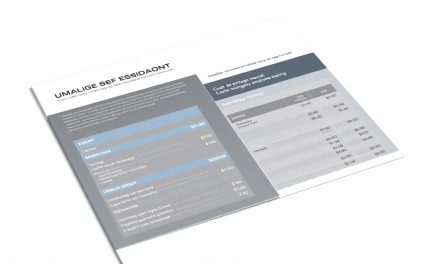Did you know over 100 million skilled people now list services on major platforms worldwide? This scale changes how companies hire and how professionals find work.
We promise to guide you to the right platform so you can secure steady jobs while protecting time, budget, and reputation. You will learn how verified profiles, escrow-driven process, and profile audits reduce risk.
Our article maps leading marketplaces—from Upwork’s verification to Fiverr’s quick microservices and 99designs’ contest model. We also cover French options like Malt and Freelance.com to help companies and independent talent in France.
Whether you are hiring or pitching for projects, we explain how to post high-converting jobs, evaluate proposals, and manage milestones securely. Expect clear, practical steps and ongoing support to build repeat business.
Table of Contents
Key Takeaways
- Use verified platforms to reduce hiring risk and get predictable outcomes.
- Choose global reach or local specialization based on budget and timeline.
- Optimize profiles and pricing to win more projects and repeat clients.
- Prefer escrow and milestones for secure collaboration.
- French platforms like Malt offer compliance and language support.
Why the Freelance Marketplace Matters Right Now
Today’s hiring landscape favors on-demand networks that link skilled professionals with projects in hours, not weeks.
Remote work has normalized flexible hiring for many companies in France and beyond. Teams can scale quickly and access niche talent without relocation. This shift gives people steady opportunities while reducing time-to-hire.
Remote work momentum and flexible hiring
Platforms such as Upwork and Fiverr host millions of users and jobs, showing how the gig economy has grown. Freelance.com operates across six countries with 370,000 consultants, and new networks add dozens of users daily.
How platforms simplify the hiring process for clients and freelancers
These systems consolidate discovery, vetting, and payments into one place. Built-in messaging, milestone tracking, and escrow reduce friction so both clients and freelancers can focus on delivery.
- Faster onboarding: fixed-price offers and clear scopes cut procurement cycles for SMEs.
- Trust tools: ratings and verified profiles protect both sides during engagements.
- Global reach: access to niche expertise and urgent timelines outside local users.
For practical steps to find the right professionals for startups and teams, see our guide on finding consultants for your start-up.
What Is a Freelance Marketplace?
At its core, a professional platform organizes discovery, contracting, and payment so teams can hire with confidence.
Definition: A freelance marketplace is a website where clients post job briefs, freelancers submit proposals or fixed-price offers, and payments are held in escrow until milestones are approved.
The core features you should expect include verified profiles, ratings and reviews, dispute resolution, and dashboards that centralize messages, files, and approvals.
How platforms differ from job boards and communities
Unlike job boards that only list openings, platforms handle contracting and payments inside the system. This reduces administrative friction and vendor risk.
Community sites like Behance or Dribbble focus on portfolios and creative discovery. They often route hiring off-site, while platforms such as Upwork, Fiverr, and 99designs keep the full process—proposals, escrow, milestones—under one roof.
« Escrow and milestone flows are the backbone of secure transactions across leading platforms. »
- For clients: clearer guarantees, support, and lower vendor risk.
- For freelancers: predictable payment flows, social proof, and dispute support.
To compare top options and find the best fit for posting a job, see our roundup of the best sites here: best sites for hiring.
How We Chose Platforms for This Product Roundup
We selected platforms that balance rigorous vetting with practical tools so teams trust delivery from day one.
Talent quality and verification standards
We prioritized strong screening. Toptal admits the top 3% after rigorous tests. La Crème de la Crème accepts roughly 10% of applicants.
Upwork offers identity checks and verified profiles. SkillValue adds technical assessments to validate real skills.
Category depth: design, development, marketing, data, and beyond
Depth matters. We favored sites with broad coverage so clients can scale design, development, marketing, and data work in one place.
Why this helps you: fewer vendors, smoother handoffs, consistent expertise across teams.
Fees, protection, and dispute resolution
Transparent fees were a must. Fiverr’s 20% commission is an example of clear pricing tied to structured payouts.
We also checked escrow, milestones, and dispute processes to protect both clients and freelancers throughout the project process.
« The best selections combine vetting, clear terms, and live support to reduce risk. »
| Criterion | Examples | Benefit |
|---|---|---|
| Verification | Toptal, Upwork, La Crème | Higher trust, fewer bad hires |
| Assessments | SkillValue | Objective skill proof |
| Curation & contests | 99designs | Faster creative selection |
| Fees & protection | Fiverr (20%), escrow systems | Clear cost vs. safety trade-off |
- End-to-end review: onboarding, proposals, messaging, and support responsiveness.
- We weighed international reach and local strengths for France-based compliance and language needs.
This article explains how we balanced verification, category reach, fees, and support to connect you with dependable experts and reliable processes.
Global Leaders: The Best Freelance Platforms for All-Round Projects
When projects require speed, depth and clear guarantees, three major platforms stand out worldwide. Each offers distinct discovery methods, protection features, and work flows for clients and freelancers.
Upwork: Large, verified talent pool and end-to-end project tools
Upwork grew from oDesk and Elance and now powers broad category coverage. It provides job posts, proposals, time tracking, escrow, and identity checks to reduce hiring risk for clients.
Freelancer: Global scale with diverse project categories
Freelancer hosts millions of users and millions of projects. Its acquisitions expand category reach, giving companies visibility for both niche and mainstream work.
Fiverr: Fast, affordable microservices and fixed-price gigs
Fiverr started with $5 offers and now lists 400+ categories. It excels for quick, productized services—logos, short videos, simple web tasks—with clear ratings and a 20% commission that affects cash flow for freelancers.
- Discovery: proposals on Upwork, bids on Freelancer, productized gigs on Fiverr.
- Fees & payouts: models differ and affect planning; check each platform’s terms.
- Scale: Upwork’s category depth helps companies hire multi-skill teams faster.
Design-First Marketplaces for Branding, UI/UX, and Creative
When visual identity matters, specialized design platforms give clients rapid options and clear quality signals. These sites emphasize portfolio visibility, iteration, and curated talent so you can hire with confidence.

99designs: Contest model for logos and brand systems
99designs runs interactive contests where many designers submit concepts. You can give feedback, request revisions, and choose a final brand asset that meets your brief.
Dribbble and Behance: Portfolios plus job boards for top creatives
Dribbble and Behance act as large communities that showcase real work. Clients validate style and skills before posting jobs or reaching out to users directly.
Creative Market: Pre-made assets with custom project options
Creative Market lists thousands of themes, icons, and fonts for fast delivery. You can buy ready-made items or contact sellers to commission tailored services.
Smashing Jobs and Authentic Jobs: Curated design and dev roles
Smashing Jobs and Authentic Jobs attract experienced designers and developers with serious openings. These boards surface higher-quality roles and applicants focused on long-term projects.
- Benefit for designers: social proof and community visibility.
- Benefit for clients: faster shortlists and clearer quality signals.
UI/UX and brand work thrive on platforms that display motion, interaction models, and art direction directly on the website. For a broader comparison of top options, see our top-10 platforms worldwide.
Elite and Vetted Networks for Specialized Talent
For mission-critical builds, selecting pre-screened talent cuts risk and saves time. These networks focus on depth of expertise and fast, reliable matches for complex work.
Toptal: Top-tier, rigorously screened developers and designers
Toptal admits only the top 3% after a multi-step vetting process. That makes the platform suited to high-stakes development and design work where proven experience matters.
How it helps you: Toptal matches your scope with specialized skills, reducing ramp time and lowering delivery risk. Clients get vetted experts ready for complex projects and tight timelines.
La Crème de la Crème: Highly selective French community
La Crème accepts roughly 10% of applicants and focuses on cultural fit for France-based clients. They typically present three qualified profiles within 48 hours.
- Rigor over cost: Higher fees trade for speed, curation, and hands-on support that protect outcomes.
- Benefit for freelancers: Access to premium demand and roles aligned with core expertise.
- Benefit for clients: Confidence that shortlists contain verified experts with relevant skills.
« These networks combine rigorous selection, fast matching, and dedicated support to secure outcome-driven engagements. »
France Spotlight: The Best Freelance Marketplaces for French Clients and Freelancers
Local platforms in France make it easier for companies to hire qualified independents without language or compliance friction.
Below are the leading options that balance scale, vetting, and speed. Each platform targets slightly different needs—enterprise orchestration, quick quotes, microtasks, or technical validation.
Malt
Malt connects 260,000 freelancers with 40,000 companies across 100+ digital specialties. It simplifies compliance and language needs for French clients.
Freelance.com
Freelance.com lists 370,000 consultants across six countries and supports large companies with broad delivery capacity and ecosystem management.
404Works, Codeur.com, 5euros.com, SkillValue
404Works is selective (≈30k members). Codeur.com speeds matchmaking—first quote in ~5 minutes and a 4.9/5 rating from 650+ reviews.
5euros.com excels for microservices: high volume and 98.5% positive feedback across hundreds of thousands of orders.
SkillValue adds technical assessments with a large developer base to validate skills objectively.
- For clients: faster access to vetted experts and local support.
- For freelancers: steady local demand and clearer project flows.
| Platform | Scale | Strength | Best for |
|---|---|---|---|
| Malt | 260k freelancers / 40k companies | Local compliance, language fit | Mid-market projects, agencies |
| Freelance.com | 370k experts, 6 countries | Enterprise delivery, ecosystem | Large programs, cross-border work |
| Codeur.com | 245k freelancers / 184k companies | Fast quotes, strong ratings | Quick hires, small agencies |
| 5euros.com | 617k microservices delivered | High volume, transparent reviews | Micro-budgets, simple tasks |
| SkillValue | 500k developers; 400k assessments | Technical testing, objective data | Tech hiring, skills validation |
Category-Specific Options for Tech, Startup, and Growth Teams
Specialized platforms help tech and growth teams find the right mix of remote talent, managed delivery, and advisor support. These sites target distinct needs: distributed roles, complex builds, flexible engagements, and startup-focused advice.
We Work Remotely: Remote-friendly roles across product and marketing
We Work Remotely aggregates programming, design, marketing, and sales openings. It is ideal for distributed teams that hire for long-term or contract jobs and for clients seeking remote-first skills.
Gigster: Managed builds for complex engineering
Gigster offers a managed delivery model. For rapid v1 coding and multi-discipline development, they scope, staff, and run projects end-to-end.
Guru and PeoplePerHour: Flexible engagement and collaboration tools
Guru (1.5M+ members) and PeoplePerHour provide hourly or fixed options and include collaboration features. They suit teams that want curated talent without sacrificing budget control.
Startupers and Clarity: Startup jobs and on-demand expert advice
Startupers lists startup-centric jobs. Clarity connects you with advisors for fundraising, community, and growth strategy. Together they deliver targeted opportunities and strategic coaching.
« These platforms shine when you need domain focus—remote-first talent, startup DNA, or deep engineering support. »
| Platform | Strength | Best for |
|---|---|---|
| We Work Remotely | Remote job aggregation, strong newsletters | Distributed hiring for product & marketing |
| Gigster | Managed engineering delivery | Complex development projects, rapid v1 |
| Guru | Large services database, flexible contracts | Recurring hourly work and consultancy |
| PeoplePerHour | Curated, affordable talent | Small teams and short projects |
| Clarity / Startupers | Expert calls and startup-focused roles | Advisory sessions, early-stage hiring |
For clients: these platforms cut time-to-hire and match specific skills to projects. For freelancers, they offer targeted demand streams aligned with each individual’s strengths and preferred engagement model.
Pricing, Fees, and Payment Flows You Should Know
Understanding fees and payment flows helps you plan cash and protect project outcomes. We explain common commission styles, pricing types, and how escrow and milestones shape delivery.
Commission models and fee tiers
Fees usually come as a percentage of the contract. These charges fund escrow, fraud prevention, and dispute support so clients and freelancers can work with confidence.
Hourly vs. fixed-price vs. microservices
Pick hourly when scope changes and you need time tracking. Use fixed-price for clearly defined projects. Microservices suit small tasks and fast turnarounds, common on productized services sites.
Escrow, milestones, and payout timelines
Escrow holds funds until milestones are approved. That process documents acceptance and reduces payment disputes. Payout timing varies by platform—Fiverr, for example, keeps funds for 14 days after delivery.
| Model | Who it suits | Typical fee | Payout timing |
|---|---|---|---|
| Hourly tracking | Long, evolving builds | Platform-dependent (0–20%) | Weekly or on approval |
| Fixed-price | Defined deliverables | 5–20% commission | After milestone acceptance |
| Microservices | Small tasks, fast delivery | 10–20% (example: Fiverr 20%) | Often 7–14 days |
| Escrow + milestones | Complex, staged projects | Built into platform fee | Releases per milestone |
Practical tip: check fee policies on each website before you post or bid. Clear terms on commissions and payouts reduce surprises and protect cash flow.
Posting a Job That Attracts the Right Talent
An effective job ad makes selection simple and speeds delivery. Start with outcomes, not vague wish lists.

Write a clear brief: scope, deliverables, data, timeline
Define scope and deliverables clearly: what you need, exact outputs, and acceptance criteria.
Mention required skills and what access to data you will provide. Add milestone dates and expected time for reviews.
Set budget and choose the right platform
Calibrate budget to complexity and market rates. Expect higher fees on selective networks like Toptal and lower cost for microservices.
Match the project to strengths: contests (99designs) for brand exploration, curated networks for critical work, and rapid quote sites like Codeur.com for quick hires.
Screen portfolios, tests, and trial tasks
Judge portfolios for measurable outcomes, not only visuals. Look for problem statements, constraints, and results shown on Dribbble or Behance profiles.
Use assessments or small paid trial tasks to confirm skills and collaboration style—SkillValue tests and brief trials reduce risk.
- Tip: keep communication timely and provide structured feedback to speed alignment.
| Need | Best approach | Why it works |
|---|---|---|
| Brand exploration | Contests (99designs) | Many concepts, interactive feedback loops |
| Critical builds | Curated networks (Toptal) | Deep screening, proven experience |
| Fast quotes | Rapid platforms (Codeur.com) | Quick responses, faster time-to-hire |
For Freelancers: How to Win Projects and Build Reputation
Clients hire confidence: make your profile, proposals, and timelines advertise predictable outcomes.
Optimize your profile by specializing in a narrow niche and showing case studies with measurable results. Use platform badges, testimonials, and project metrics to prove your experience. Creative Market and Behance remain top channels for visual portfolios; Upwork and Freelancer reward repeat positive reviews.
Proposal strategies and time management
Write proposals that restate the client’s goals, outline a step-by-step approach, and define milestones. Include buffers for reviews and state your weekly availability.
Fee setting, scope control, and client communication
Set fees based on value and complexity, not only hours. Use written change-control for scope and confirm new work before starting.
- Specialize: clear niche + case studies = faster trust.
- Propose: goals, milestones, and risk mitigation up front.
- Manage time: milestone plans and review buffers.
- Protect fee: align price to outcome; confirm scope in writing.
- Use platform mechanics: fast responses and on-time delivery boost visibility.
- Build community: keep repeat clients with clear processes and follow-up suggestions.
For proven client-retention methods and support tools, see our guide on securing clients with proven methods.
Trust, Safety, and Project Management
Certain rules protect payment and delivery: verify identities, record agreements, and require escrow before full handover.
Verification, reviews, and dispute processes
Verification checks and ratings give clients and freelancers quick signals of reliability. Platforms like Upwork reduce hiring stress with ID checks. Codeur.com’s 4.9/5 reviews show how strong feedback builds confidence.
Structured dispute processes and escrow protect both sides. Use milestones to confirm each deliverable before funds release. Escalate early if scope or quality diverges from the agreed process.
Secure communication and protecting IP
Keep messages and file transfers inside the platform to retain an audit trail. That practice simplifies any support requests and documents acceptance.
- Clarify IP ownership and licensing in milestone messages.
- Share staged deliverables until escrow is funded and approvals are recorded.
- Centralize vendor management to enforce security and documentation across companies and users.
Bottom line: use platform tools, follow simple processes, and document approvals. This protects work, preserves expertise, and reduces payment risk for both clients and freelancers.
Use Cases by Team Type: Marketing, Design, and Development
Teams in marketing, design, and engineering use specialized channels differently to deliver faster, measurable results.
Marketing and social media: campaigns, content, and analytics
Marketing teams scale content production with microservices on platforms such as Fiverr and 5euros.com. They use short tasks to fill social media calendars and to spin up landing pages quickly.
Typical work: campaign copy, ad creatives, SEO briefs, and A/B tests. Analytics require clear briefs showing data sources and KPIs so outputs are actionable.
Design and branding: logos, web, and product UI
Design teams explore brand directions with contests and portfolios. 99designs runs brand contests while Dribbble and Behance showcase UI case studies you can vet.
Typical work: logo concepts, website mockups, and iterative UI flows. Designers win projects by showing systems, revisions, and measurable visual outcomes.
Web, app, and data development: builds, integrations, and automation
Development teams hire vetted engineers for web and app builds, API integrations, and automation. Gigster manages complex engineering, and SkillValue provides dev assessments to validate skills.
Tip: blend microservices for volume and curated networks for critical components. This helps clients optimize cost and quality while keeping delivery predictable.
- For clients: mix platforms to match urgency and risk.
- For freelancers: showcase campaign metrics, design systems, and shipped features to win aligned projects.
Choosing the Right Platform for France-Based Projects
A platform that offers native French support and compliant contracts saves time and reduces risk.
Language, support, and compliance considerations
Prioritize platforms with French-language interfaces and local customer support. This speeds procurement and avoids misunderstandings with clients and companies.
Legal alignment matters: confirm tax, NDAs, and IP clauses match French rules before signing. La Crème de la Crème often matches talent within 48 hours, which helps when speed matters.
Local market advantages vs. global reach
Local platforms such as Malt (serving 40,000 companies) and Codeur.com or 404Works accelerate matching thanks to cultural fit and proximity.
Global platforms expand access to rare expertise and a larger pool of users. Balance both to blend speed, specialization, and cost.
« Blend local and global platforms to balance speed, specialization, and budget. »
- Tip: check platform support, legal templates, and payment flows before posting work.
- For an overview of suitable options for France, see our roundup of platforms for France-based projects.
| Platform type | Local strength | Best use |
|---|---|---|
| Malt / Codeur.com / 404Works | French support, compliance | Mid-market projects, fast local matches |
| Freelance.com | Cross-border scale (370k experts) | Large programs, multi-country delivery |
| Curated networks | Fast, vetted matches (La Crème) | High-stakes, quick quality hires |
Conclusion
Select a few well-matched platforms and run a short pilot to confirm fit before scaling a project.
Use a mix of global leaders and local options to balance scale, compliance, and speed. Pick one design-first site, one vetted network, and one France-focused option to cover different needs.
For clients: write a clear brief, stage milestones, and use escrow or platform protections to secure outcomes. For freelancers: niche, price on value, and communicate proactively to build repeat work and ratings.
The right freelance marketplace choice turns risk into predictable delivery. Shortlist two to three platforms, test with a small project, and expand once the experience proves reliable.
FAQ
What is a freelance marketplace and how does it differ from a job board?
A freelance marketplace is a platform that connects clients and independent professionals for project-based work, offering tools like job posting, proposals, secure payment, and ratings. Unlike a job board, which lists vacancies for direct applications, marketplaces usually manage contracts, escrow payments, and dispute resolution to protect both parties.
Why should companies use a marketplace for remote hiring now?
Marketplaces streamline remote hiring by providing access to vetted talent across design, development, marketing, and data. They speed up sourcing, offer transparent reviews, and include payment and project-management features that reduce administrative burden and hiring risk.
How do platforms verify talent quality and protect clients?
Leading platforms use identity checks, skill assessments, portfolio reviews, and client feedback to verify experts. They also provide escrow, milestones, and dispute resolution to protect payments and project deliverables.
Which platforms are best for large, ongoing projects?
Platforms like Upwork and Toptal are suited for long-term or complex work. Upwork offers broad talent pools and integrated project tools; Toptal focuses on highly screened senior developers and designers for mission-critical work.
What options are best for quick, low-budget tasks or microservices?
Fiverr and 5euros.com specialize in fixed-price, fast-turnaround microservices. They’re ideal for small tasks like social media posts, logo tweaks, or short web fixes where speed and clarity of scope matter most.
How should I write a job brief to attract the right talent?
Keep the brief concise and structured: define scope, deliverables, timeline, technical requirements, and budget. Include data access needs, examples of desired outcomes, and evaluation criteria to help applicants submit relevant proposals.
What payment models are common and which should I choose?
Common models are hourly, fixed-price, and milestone-based payments with escrow. Choose hourly for ongoing collaboration, fixed-price for well-defined deliverables, and milestones for phased projects to reduce risk.
How can freelancers build reputation and win more projects?
Freelancers should optimize profiles with a clear niche, case studies, and client testimonials. Submit tailored proposals, deliver quality on time, and communicate proactively. Specializing in a category—design, web development, or marketing—helps stand out.
What fees should I expect using these platforms?
Fees vary: some platforms charge commissions on earnings, others bill clients a service fee, or both. Tiers may reduce fees as volume increases. Always review the fee schedule and factor platform costs into your budget or pricing.
Are there France-specific platforms and why choose them?
Yes. Platforms like Malt, Freelance.com, and Codeur.com serve the French market with local language support, compliance, and networks of regional companies. They help with local contracts, tax considerations, and easier communication for France-based projects.
How do elite networks like Toptal differ from general platforms?
Elite networks focus on rigorous screening and maintain a smaller pool of senior specialists. They prioritize high-quality matches and often provide dedicated account management for complex or strategic projects, which raises cost but reduces hiring risk.
What safeguards exist for IP and confidential data?
Safeguards include nondisclosure agreements, platform-secured messaging, and controlled file sharing. Use written contracts that specify IP assignment and confidentiality; choose platforms that support legal protections and encrypted communication.
How do I choose the right category-specific site for tech or startup needs?
Match the platform’s strengths to your needs: use Gigster or Toptal for managed engineering builds, We Work Remotely for remote product and marketing hires, and specialized communities for growth or analytics. Assess portfolio depth, past projects, and client reviews.
What is the usual process for resolving disputes between clients and freelancers?
Most platforms offer a structured dispute process: mediation via support, review of deliverables and communications, and escrow-based decisions if funds are held. Keep clear records and use milestones to minimize escalation.
How important are portfolio platforms like Dribbble and Behance for creatives?
Very important. Dribbble and Behance showcase work, attract clients, and double as job boards. A strong portfolio with case studies and context helps creative professionals win branding, UI/UX, and visual design projects.
Can businesses rely solely on international platforms, or should they use local services too?
Both have value. International platforms offer scale and specialty talent, while local services provide language support, regulatory compliance, and cultural fit. For France-based initiatives, combine both to balance reach and local advantages.





